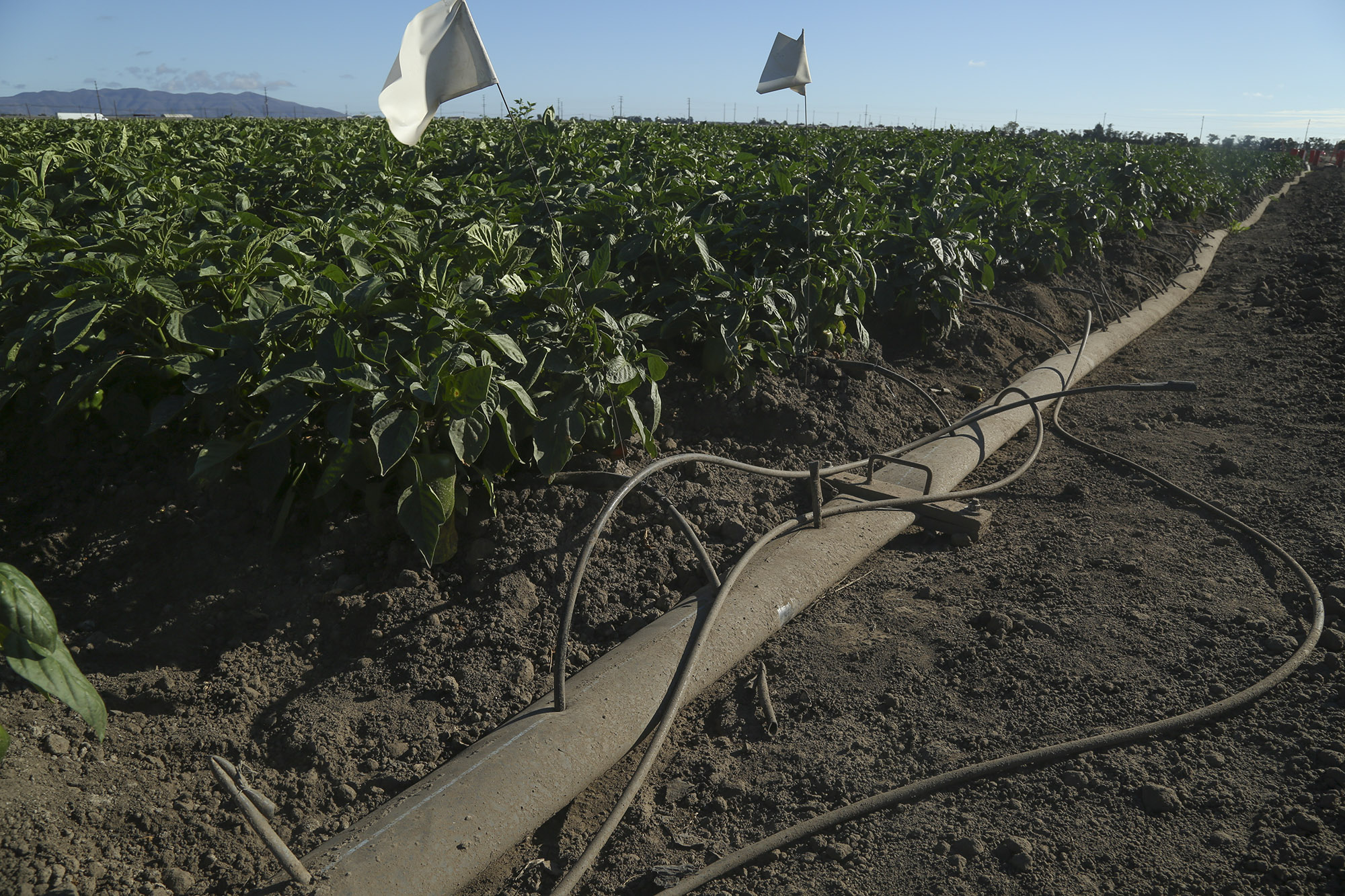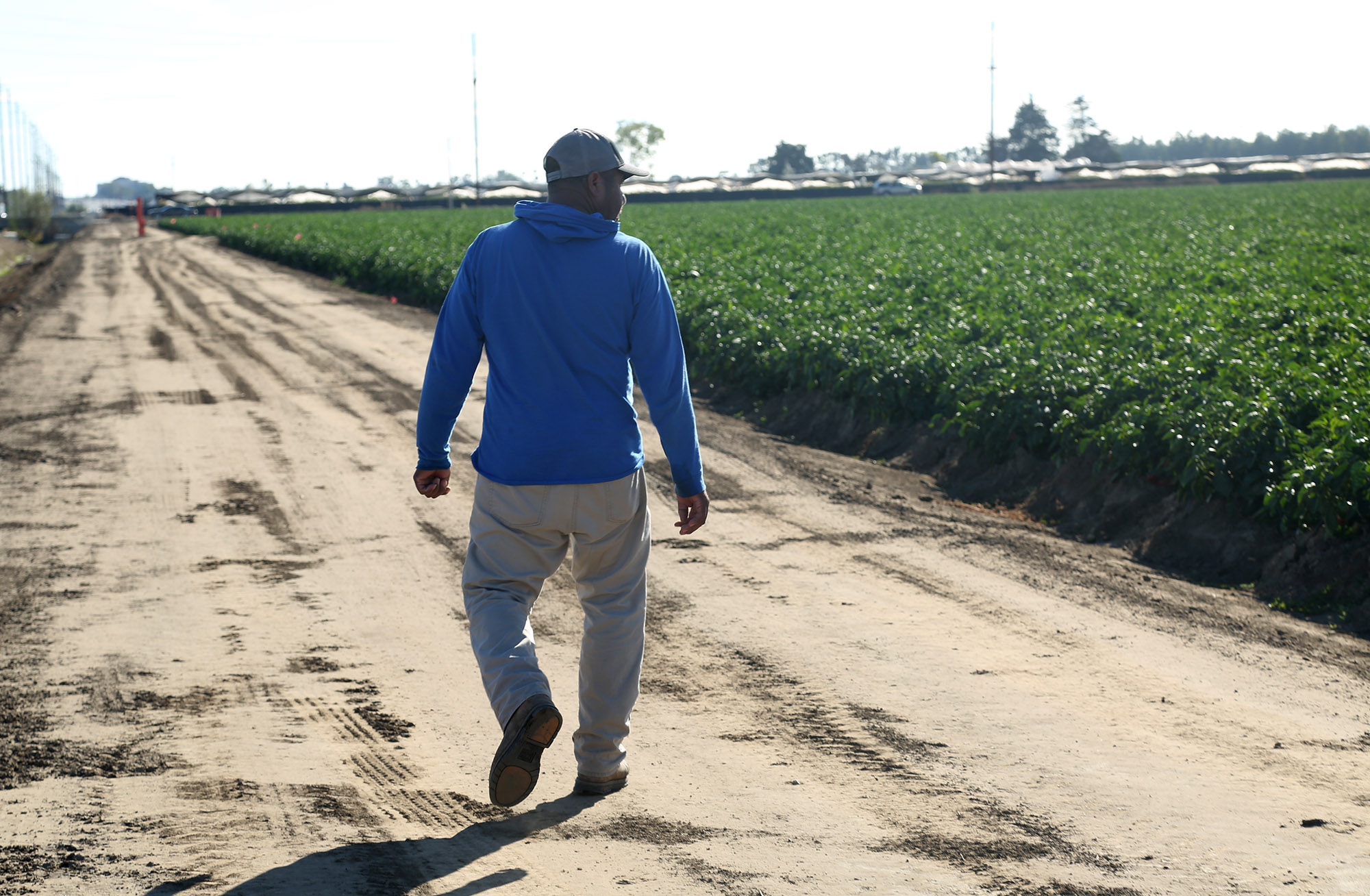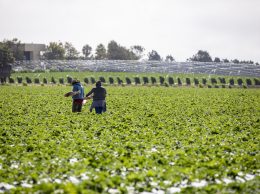Region’s farmers leave more land unfarmed as drought deepens
IN THIS ARTICLE
- Agribusiness Topic
- Jorge Mercado Author
By Jorge Mercado Thursday, September 22nd, 2022

Cilantro isn’t a huge moneymaker for Will Terry, the vice president at Terry Farms in Ventura County, but it is a quick crop that he can grow in the summer months and turn a small profit on.
But, due to the ongoing drought exacerbated by limited groundwater allocation rights, growers like Terry have to make tough decisions, like sacrificing those smaller crops.
“We’ve had to limit a lot of production of summer crops,” Terry told the Business Times. “Normally we try to fit a quick crop like cilantro, which grows fast and doesn’t take much water, but instead we had to leave the ground fallow to make sure that we had enough water set aside from a regulatory standpoint to be able to irrigate for our core crops like bell peppers, celery, cabbage and strawberries.”
Terry said getting rid of a crop like cilantro is the easiest, because it isn’t already contracted out ahead of time, so there is no obligation sell it to a specific buyer. But even with cutting that crop, he’s had to limit production on things like celery and strawberries, both of which use a bit more water than other Ventura County crops like lemons.
According to the National Integrated Drought Information System, 94.1% of California is in a “severe” or worse level of drought, including all of the tri-county region.
As a result, growers have often been forced to limit production to efficiently use the water they do have.
Farmers all over the state have planted fewer acres as the drought has deepened. California farmers in 2021 fallowed over 395,000 acres of cropland, resulting in more than 14,000 lost farm jobs and about $1.7 billion in lost revenue, according to the California Farm Water Coalition.
Fallowing is a farming technique in which usable land is left without sowing for one or more vegetative cycles.
The California Farm Water Coalition predicts this year will be worse, with as much as 700,000 acres of farmland fallowed, more than 25,000 lost jobs and a loss of $3.5 billion in lost economic output, the California Farm Bureau recently reported.
Maureen McGuire, CEO of the Farm Bureau of Ventura County, told the Business Times there are no exact stats on how much ground has been fallowed, but she has heard from farmers limiting their production.
“Because Ventura County is reliant on groundwater, the drought most affects farmers based on the amount that the rainwater recharges the aquifer, and so it really is an impact on the long-term sustainability of the basin,” she said. “Growers are only pumping the amount that they are allowed to pump by the regulatory bodies.”
Terry’s farm falls under the oversight of the Fox Canyon Groundwater Management Agency, which manages four groundwater basins in Ventura County.
During times of severe drought, the agency sets stricter limitations on how much water growers can pump in a year, with severe fines for going over, Terry said.
“If we hit our pumping limits earlier in the season due to lack of rainfall, it forces us to reduce the volume of crops that we grow. The fines for over pumping are too high to justify continuing to plant, so instead we have to fallow ground,” Terry said. “Most crops in most years cannot absorb the additional cost of those punitive fines for pumping above our allocation.”
McGuire said growers have been planting fewer trees per acre of orchard, taking crops out early and employing any new technology they can to limit their water usage.
“If we continue to see cutbacks on the amount of water that’s allocated to farmers, there will definitely be an increase in fallowing of ground, and that affects everything,” she said. “You might rent 100 acres but only farm 50 of it, because you only have enough water to support that 50 acres and that affects rental prices, land values of ag land, etc.”
Tom Deardorff II, co-operator of Deardorff Family Farms in Oxnard, said the effects of below-normal rainfall are obviously being felt, but the regulatory practice of limiting allocation of groundwater can use have a much bigger effect.
“The Mother Nature part of things we’ll figure out, we always have for generations, but having to deal with regulatory environment and policymakers who really don’t know what they’re doing is extremely frustrating,” he said.
Deardorff said his farm has had to slow down production, not growing as many crops per year. The farm has mostly limited its cabbage and kale crops, two of its better-known products. It also grows lettuce and celery.
“The regulatory effect of what is being done is almost unsustainable. The success of coming out of this drought will be dependent upon the regulations, not on Mother Nature,” he said.
There is no exact figure on how much limiting production has hurt growers in the region, but Terry estimates it’s “somewhere in the tens of millions” in Ventura County.
“Most of what farmers do is pretty narrow margin, so we can cut a lot of the expense out by not actually growing the crop, but we can’t cut all of them. You don’t want to lay a bunch of people off and you can’t just negotiate out of a lease,” Terry said. “So the impact to family organizations could be millions of dollars in revenue, which can equate to meaningful profit generation, and it impacts family farms and their ability to continue farming.”













